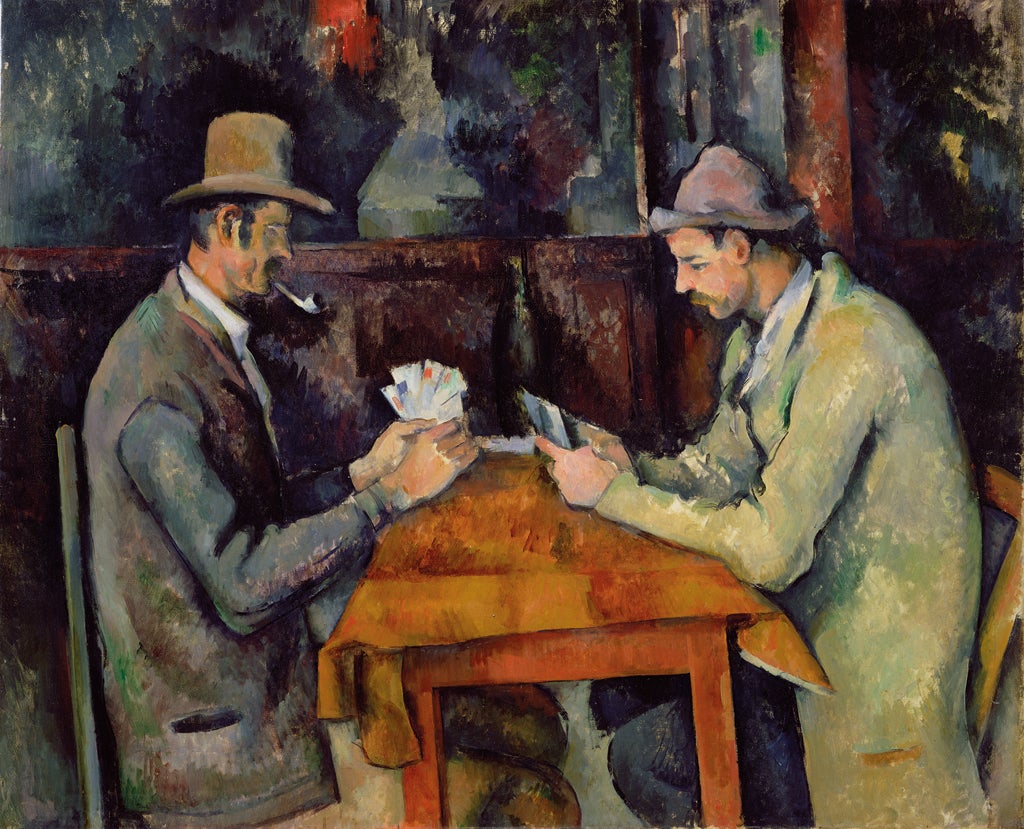Have you considered History of Art?

History of Art is considered something of a niche degree choice in Britain. While no-one would deny that art is a fascinating subject with a longer and more diverse history than, say, English literature, History of Art exists on the margins at most universities, the preserve of a few dedicated students.
But although it has a small following, it is anything but insignificant in scope or academic rigour. It’s about art, of course, but there’s much more to it than staring at paintings and stroking one’s chin.
“History of art is more than simply the study of creativity and aesthetics,” according to James Bevan, an alumnus of the Courtauld Institute in London, which is a specialist university that focuses entirely on the subject. “It incorporates all aspects of history, as well as philosophy, anthropology, politics and religion. Art is an insight into the zeitgeist, as well as some of history's most fascinating protagonists.”
Jerome Hasler, another recent graduate, agrees: “History of art gave me the opportunity to explore the stories within works of art, addressing social, political or personal reasons behind their particular appearance or fame.”
So it’s clearly a very interesting subject to study, covering a huge slice of the human experience, but what can you do with it? Gareth Evans, a spokesman for the Courtauld, believes that History of Art is crucial for the development of public culture. "The Courtauld produces the museum directors of the future," he says.
Anyone who wants to be seriously involved in museum and gallery curation needs to get their academic grounding sorted out with a degree. You don't get to be director of the Tate without a deep knowledge of the art world as a whole - one you can't just get from avidly attending exhibitions. “Wherever you go in the art world, even internationally, you will find someone from the Courtauld,” adds Evans
Not everyone who attains a degree in history of art is forced into the art world, however. Hasler, for instance, now works for a crisis management consultancy. “It’s not a directly vocational position,” he admits, but history of art has still been very beneficial. “It taught me to be creative, to research thoroughly and to appreciate that many factors can contribute to a final product, things I use and value every day in my job.”
Bevan concurs: “Had I wanted to work in an auction house, curate or write for an art magazine, then I would have been very well placed, especially if I'd continued on with an MA, and there were some tempting options at the Courtauld, such as art restoration. History of art led logically for me into more writing, specifically journalism, and achieving a good degree from a prestigious university did my job prospects no harm at all.”
There is a slight perception, perhaps, that history of art is an elitist subject. Professor Joanna Woodall, who teaches at the Courtauld, is at pains to disagree.
“People often think of art history as elitist, but it's a subject in which everyone has something to contribute. People notice different things and ask different questions,” she says. “What we are trying to look for is someone who might not have the traditional qualifications but has the passion for the subject.
“We try to look for someone who shows a demonstrable interest in the subject - but that doesn't mean they have to know reams about art history. Those coming to history of art from other disciplines bring something different and enliven the discipline for everyone.”
And what’s it actually like to study history of art as a subject? Kate Roberts, who graduated from the Courtauld this year, enjoyed every minute.
“If you've never studied the subject before, you start with a leveller course,” she says. This introductory course gives new students an overall perspective on their degree. As you progress, you get a more in-depth look, and the chance to learn about things you are personally interested in.
“As you progress, you cover all the different aspects of theory, and every term you get to learn about a different period. In the first couple of years you get to build up this knowledge and then in the third you get to tackle your particular interests.”
Hasler is convinced it was worth it, making firm friends with an inspiring bunch of people, while studying for a fascinating degree. “Before the course I didn’t know anyone who lived in another country, for instance. Now I have even better reasons to travel to New York, Vienna or Paris!”
Join our commenting forum
Join thought-provoking conversations, follow other Independent readers and see their replies
Comments
Bookmark popover
Removed from bookmarks